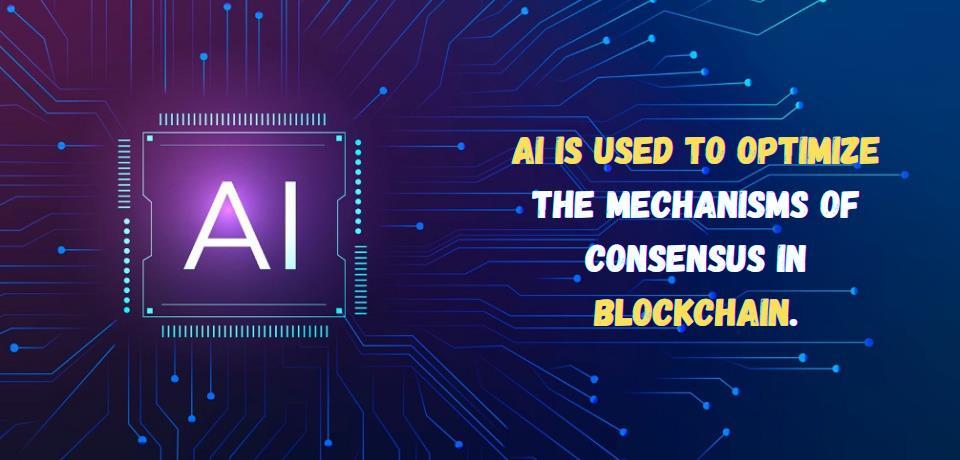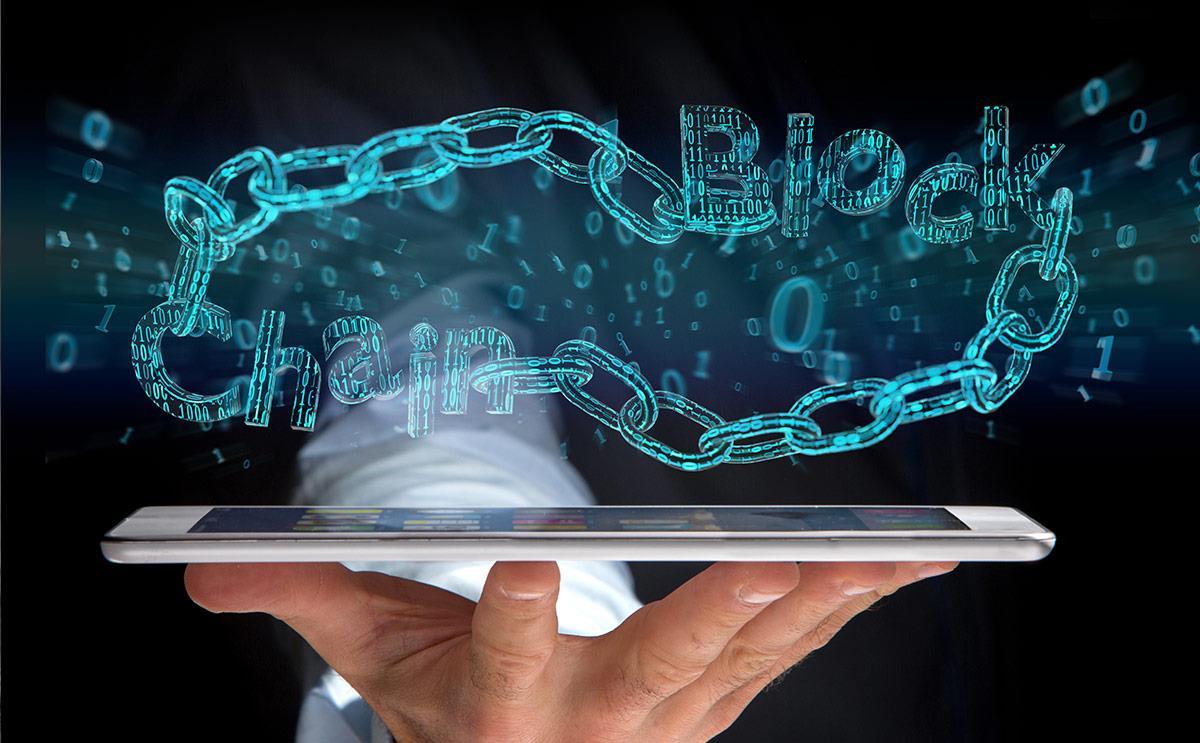AI
is used to optimize the mechanisms of consensus in blockchain.

Opening statement
In the rapid rise of decentralized economies and cryptocurrencies, robust and efficient blockchain consensus mechanisms are needed. As this technology grows in popularity, the need for creative AI solutions to overcome the shortcomings of traditional consent models increases.
This is the age of artificial intelligence (AI) and machine learning . This groundbreaking technology will change how blockchain networks reach consensus, improving performance, security and scalability. In this blog post, we will explore how AI-driven customization is changing the blockchain consensus mechanism and its potential impact on different industries and applications around the world.
The role of artificial intelligence in blockchain contracts
Consensus is essential to maintain the trust and security of the distributed ledger in a blockchain network. However, traditional contract models such as proof of work (PoW) and proof of participation (PoS) face many challenges to keep up with the ever-changing landscape of the blockchain ecosystem This is the place with AI and machine learning, offering a change to a more conscious approach.
Algorithm for Consensus that is able to adapt
Through the utilization ofAI-based algorithms, blockchain systems are capable of adjusting and reacting to dynamic network conditions instantaneously. This ability to adapt allows for the flexible modification of agreement settings, guaranteeing top performance and endurance.
Selection of smart validators
Furthermore, AI can also be used to smartly choose the most dependable and credible validators in the network, enhancing the overall security and durability of the blockchain.
Modeling of Consensus Prediction
In the future, the potential of incorporating AI-driven predictive modeling into blockchain consensus mechanisms is very promising. Through predicting and modeling network activity, blockchain networks can preemptively modify their agreement techniques to enhance efficiency and lower possible threats.
Practical Uses and Examples in the Field
The benefits of AI-powered blockchain consensus optimization are not just hypothetical; They are now found in practical situations. Crypto-coin developers in finance are using these advances to improve the security and effectiveness of decentralized trading platforms, trading bots and development services By integrating AI-based consensus mechanisms these platforms can provide them the ability to detect and stop fraudulent activity has increased, also as users. to enhance the experience
Blockchain solutions in the field of supply chain management use AI-driven consensus to ensure product authenticity and traceability. Chatbot solution providers incorporate this technology into their platforms, enabling smooth communication and decision-making throughout the supply chain.
Furthermore, the incorporation of consensus mechanisms powered byAI is altering the decentralized applications (dApps) landscape. Chatbot development firms and chatbot agencies are utilizing these advancements to produce chatbot solutions that are more secure and responsive, giving users increased trust and dependability.
Obstacles and Factors to Keep in Mind
Although the potential ofAI-powered blockchain consensus optimization is clear, there are also crucial considerations and challenges that need to be dealt with. It is important to address worries regarding the security and transparency of AI-driven systems, making sure to maintain the decentralized aspect of blockchain technology.
Furthermore, it is crucial to carefully analyze the legal and regulatory impacts of blockchain technologies driven byAI, as policymakers and governing bodies strive to develop suitable frameworks and guidelines.

The Outlook forArtificial Intelligence-Powered Blockchain Consensus
As society increasingly adopts blockchain technology, the importance ofAI-driven optimization of consensus mechanisms will grow even further. In the future, we anticipate further development of these innovative solutions, including progress in decentralized governance and decision-making. Building chatbots and providing chatbot solutions will be crucial in influencing the direction of AI-driven blockchain consensus in the future by incorporating these advancements into their systems for enhanced user interactions that are both secure and quick.
Additionally, the potential of AI-driven blockchain consensus working together with emerging technologies such as edge computing and the Internet of Things (IoT) is vast, leading to a future that is more decentralized, efficient, and interconnected.
Summary
The incorporation of AI and machine learning in blockchain consensus
mechanisms marks a revolutionary change in how we address the issues of decentralized finance and cryptocurrencies. Through the utilization of adaptive algorithms, smart validator selection, and predictive modeling, blockchain networks can access higher levels of efficiency, security, and scalability.
With the increasing use of these technologies, there are significant and thrilling opportunities for trading bot development services and chatbot development companies to play a role in this changing landscape. Through utilizing AI technology to optimize blockchain consensus, we can work together to create a future in which decentralization is fully achieved, empowering both individuals and industries.
